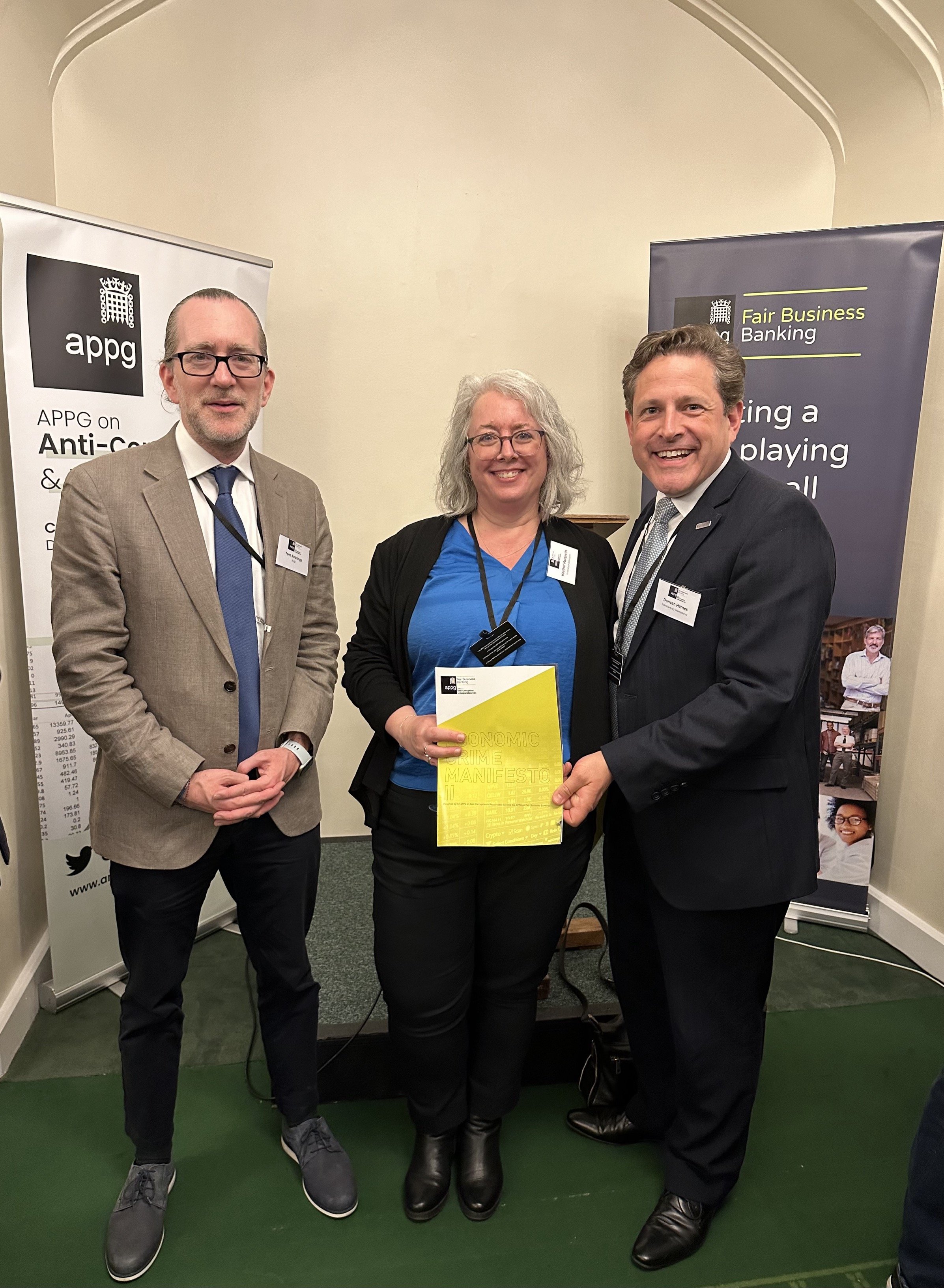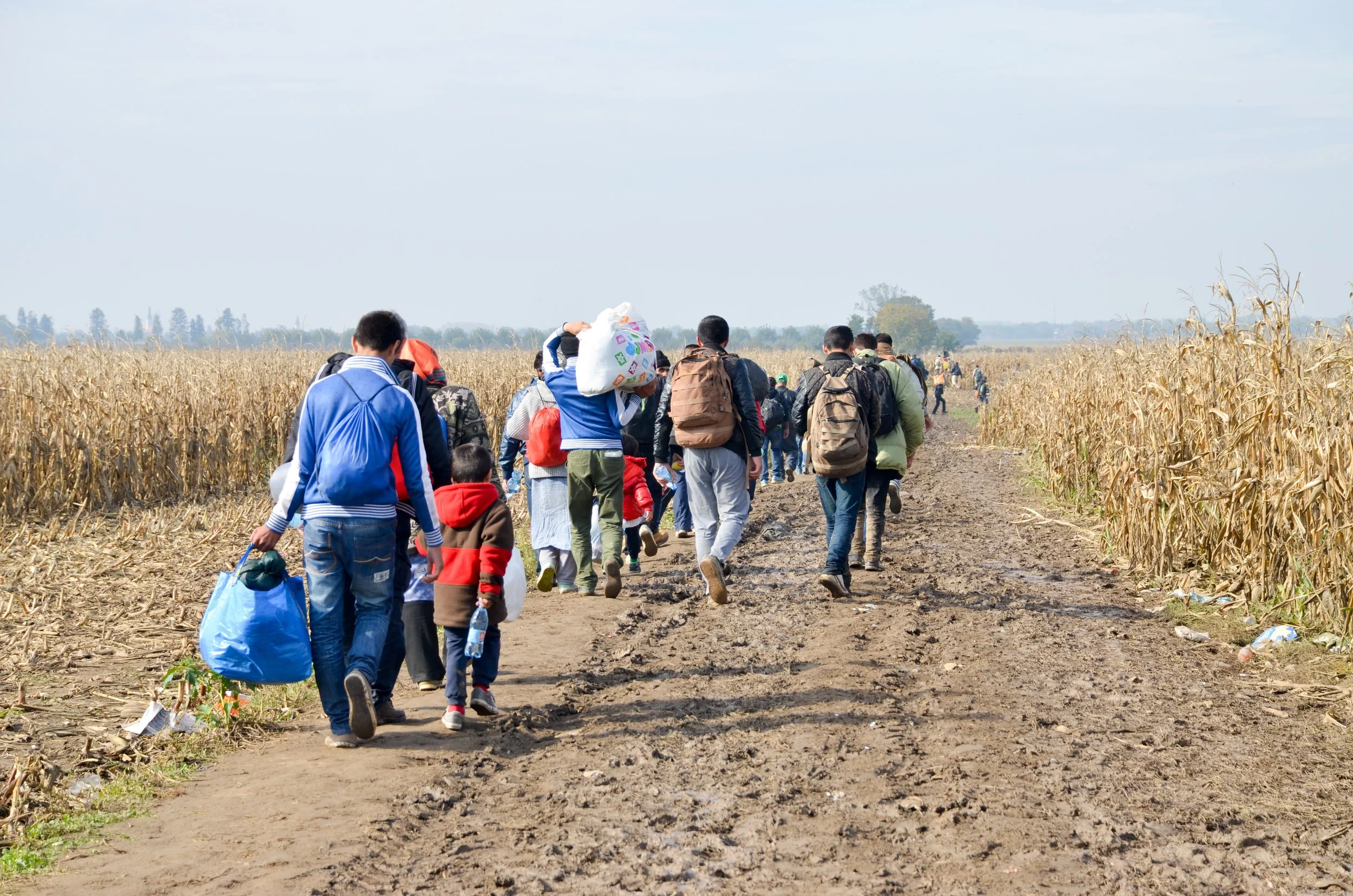NEWS
SOC ACE October 2024 Newsletter
This month, we have a bumper crop of new publications, we report back from our first-ever SOC ACE Research Conference held at the University of Birmingham, with updates on an innovative Policy Lab on Para-statal armed groups, illicit economies and organised crime and much more. Sign up for next month’s newsletter now!
New Book Chapter Release: The Legal Design of Domestic MLA Procedures in Southeast Europe
We are thrilled to announce the release of a new book chapter by Slobodan Tomic (University of York) and Elizabeth David-Barrett (University of Sussex), titled The Legal Design of Domestic MLA Procedures in Southeast Europe: A Comparative Analysis of Serbia, North Macedonia, and Bosnia and Herzegovina.
New Journal Article Examines How Gangs Govern in Areas with Limited State Control - Medellín, Colombia
A new paper from Christopher Blattman, Gustavo Duncan, Benjamin Lessing, and Santiago Tobón on Gang Rule: Understanding and Countering Criminal Governance, has been published in in The Review of Economic Studies, Oxford Academic. The paper explores how gangs often take on governance roles in communities with limited state authority, offering insights to shape policies aimed at reducing crime and improving security.
Benjamin Lessing Advocates New Strategy for Reducing Cartel Violence
Political scientist Benjamin Lessing advocates using incentives rather than force to reduce Latin American cartel violence, in recent Economist article: Use incentives, not brute force, on the cartels, says a political scientist.
New Research “Addressing Organised Crime and Security Sector Reform and Governance: Linkages, Processes, Outcomes and Challenges”
New SOC ACE research from Huma Haider examines how security and justice institutions, organised crime, SSR/G and counter-organised crime interventions influence and impact each other, positively and negatively.
New SOC ACE Briefing Note on Information Manipulation and Organised Crime
We’ve summarised our recent publication from Dr Tena Prelec, on examining the nexus between information manipulation and organised crime. The paper introduces a new framework for assessing the nexus, highlights emerging trends and proposes several areas for further research.
New Spanish Translation available now: Grupos del crimen organizado, agendas criminales, violencia y conflicto: Implicaciones en materia de participación, negociación y procesos de paz
We’re thrilled to share the Spanish translation of SOC ACE briefing note ‘Organised crime groups, criminal agendas, violence and conflict: implications for engagement, negotiations and peace processes,’ written by Huma Haider. The briefing note, now provided in Spanish, demonstrates the importance of creating a framework for engaging with criminality and organised crime groups that extends beyond confrontation – allowing for accommodation and incorporating a wider societal change agenda through transformation.
SOC ACE May 2024 Newsletter
This month, new journal articles explore the impact of raising awareness about corruption and organised crime. Dr. David Ucko discusses Irregular Warfare and organized crime on the U.S. Naval War College’s 'Trident' podcast. We've participated in events on illicit networks in the Levant, functionality and strategic corruption, and combatting modern kleptocracy. SOC ACE will also be aking part in the IACC Conference. Sign up for next month’s newsletter now!
SOC ACE to join panel at IACC Conference on ‘Combatting Modern Kleptocracy: Assessing the Impact of Two Years of Sanctions on Russia’
We’re thrilled to be attending the International Anti-Corruption Conference (IACC) in Vilnius next week. SOC ACE is particularly excited about contributing to a timely panel titled "Combatting Modern Kleptocracy: Assessing the Impact of Two Years of Sanctions on Russia,” hosted by our partners at the Royal United Services Institute (RUSI).
Join us on Thursday 20 June, at 14:30 - 16:00 (Europe/Vilnius)
SOC ACE researchers take part in the CEEISA-ISA Joint Conference ‘Knowing the global-local: Imagining pasts, debating futures’
This June, SOC ACE researchers will participate in a roundtable on ‘Illicit Finance, Transnational Corruption, and Informal Economies in Contemporary Conflict’ at the Central and Eastern European Schools Association - International Studies Association (CEEISA-ISA) Joint Conference: ‘Knowing the Global-Local: Imagining Pasts, Debating Futures.’
Professors Heather Marquette and Caryn Peiffer launch workshop on social bads to innovate anti-corruption and SOC strategies
Professor Heather Marquette (University of Birmingham) and Dr Caryn Peiffer (University of Bristol) are launching the next phase of their research on "Understanding Functionality for More Effective SOC and Corruption Strategies and Interventions” starting with a workshop in London this June.
Alina Rocha Menocal joins panel at Carnegie Middle East Center workshop on ‘Illicit networks, transnational links, regional politics and policy responses’
Alina Rocha Menocal is attending a panel discussion on ‘Studying Illicit Networks in the Levant and Beyond’ at the Carnegie Middle East Center's workshop focused on the growth of illicit networks in the Levant since the onset of Syria’s civil war.
SOC ACE takes part in roundtable on rethinking stabilisation and responding to transnational threats at BISA Conference 2024
SOC ACE researchers are pleased to be leading the Rethinking stabilisation and responding to transnational threats roundtable at the BISA 2024 Conference Whose International Studies?
Dr Tena Prelec attends UNDP’s First Finance Integrity and Governance (FIG) Policy Symposium
Last month, Dr Tena Prelec attended the first Finance, Integrity and Governance (FIG) Policy Symposium hosted by UNDP’s Global Policy Centre for Governance in Oslo.
SOC ACE research on counter SOC awareness messaging published in Behavioural Public Policy and European Journal of Political Research
We are thrilled to announce that our recent research has been published in two distinguished journals, Behavioural Public Policy and European Journal of Political Research, shedding new light on the unintended consequences of awareness-raising strategies against serious and organised crime (SOC) and anti-corruption campaigns.
SOC ACE April 2024 Newsletter
This month, we present research on whistle-blower schemes in the fight against economic crime, Balochistan’s illicit markets, paramilitary violence and organised crime in war-to-peace transitions. We also explore politically feasible SSR responses to organised crime (OC), test strategic communications combating it, and analyse civil society's role in addressing OC. Sign up for next month’s newsletter now!
SOC ACE partners with RUSI’s Centre for Finance and Security (CFS) on State Threats Workshop: Perspectives from Germany and the UK
This March, the Centre for Finance and Security (CFS) at RUSI, in partnership with the SOC-ACE programme, convened the ‘State Threats Workshop: Perspectives from Germany and the UK’ to address current threats from state actors faced by Germany.
SOC ACE researchers attend launch of Economic Crime Manifesto 2.0
SOC ACE researchers Professor Heather Marquette, Maria Nizzero, keynote speaker Tom Keatinge and others attended the launch of the Economic Crime Manifesto 2.0, led by the All-Party Parliamentary Group (APPG) on Anti-Corruption and Responsible Tax, in collaboration with the APPG for Fair Business Banking.
New Research: Migrant Smuggling
Hostility towards migrants has increased in the aftermath of COVID-19; however drivers of migration have intensified. Regional smuggling markets and routes are consolidating under influential polycriminals, while governments crack down on smaller players. This brief brings together key lessons emerging from GI-TOC research on the smuggling of migrants (SOM) between 2015 and 2023, highlighting policy implications, and suggested ways forward.
New research: Human Rights and Organised Crime Agendas - Four Areas of Convergence for Policymaking
This latest SOC ACE briefing note highlights four key areas that warrant increased focus on the fundamental rights of individuals and the alignment of human rights and crime prevention agendas. It further highlights policy implications and suggested ways forward.



















